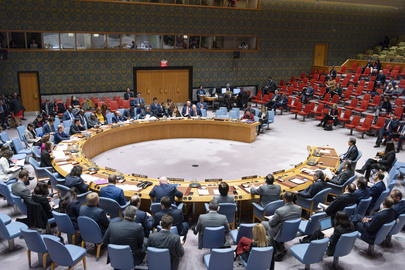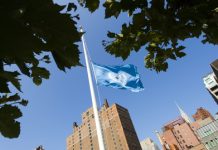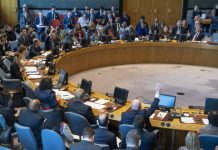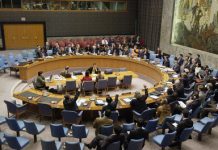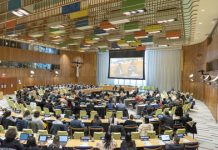While hotspots include Sudan, Syria, Afghanistan, Ukraine and Palestine, displacement affects every region of the world.
In the lead-up to World Refugee Day, Friday, the UN is spotlighting the importance of solidarity with refugees through support, solutions, and the power of storytelling.
Zahra Nader: Reporting from exile
Ahead of World Refugee Day, UN News spoke with Zahra Nader, a refugee, journalist and women’s rights activist from Afghanistan.
At age six, Nader and her family fled to Iran after the Taliban first took power, where she was denied access to education and faced racism.
Returning to Afghanistan years later, the stark contrast between life in exile and the opportunity to attend school ignited her passion for journalism and advocacy.
In August 2021, while she was pursuing a PhD in Canada, the Taliban regained control, shattering her dreams of returning home to teach and conduct fieldwork.
“I felt as a journalist who grew up in Kabul, who became a journalist there, I have a right and responsibility to tell these stories of women in Afghanistan,” she said. “This is really inhuman, for half of the population of a country to be stripped of their basic human rights because they were born female.”
Channeling that pain into action, she founded Zan Times, an Afghan women-led newsroom in exile documenting human rights abuses in Afghanistan, particularly those affecting women.
Despite limited funding and growing risks to her reporters, Nader continues her work to ensure that Afghan women are seen and heard.
She described the situation in Afghanistan as “the most severe women’s rights crisis of our time”, calling international action insufficient and warning that inaction emboldens the Taliban and its misogynistic ideologies.
Despite her trauma and current inability to return, Nader remains optimistic and urges young Afghan women to resist through learning and preparing for a better future.
“I am hopeful, and I want to be also part of that change, to envision a better future for Afghanistan, and do my part to make that future happen.”
Barthelemy Mwanza: From survival to leadership
On Thursday, UN Video featured the story of Barthelemy Mwanza, a refugee from the Democratic Republic of the Congo (DRC) who is now a youth leader and advocate.
At 18, Mwanza was caught between pressure to join an armed tribal group involved in nationwide conflict and his father’s plea to stay out of the fight, a decision that could have cost him his life.
To survive, he fled to the Tongogara refugee camp in Zimbabwe.
Emotionally overwhelmed from being displaced from his home country, “It really made me cry to say ‘Where am I?’” Mwanza said. “Later on, I was like, ‘Till when will I continue to cry? Shouldn’t I look at the future?’”
He began volunteering with UNHCR, leading more than 5,000 young refugees through initiatives tackling gender-based violence, youth protection, and climate action.
Now resettled in Ohio, United States, Mwanza continues to collaborate with UNHCR to elevate refugee voices, inspire climate action and share his story.
Empowering and advocating for refugees on a global stage “was one of my dreams, and now I can really see that it’s coming to life,” he concluded.
Barthelemy Mwanza Ngane is a refugee from the Democratic Republic of the Congo and is currently living in Akron, Ohio, US.
Source of original article: United Nations (news.un.org). Photo credit: UN. The content of this article does not necessarily reflect the views or opinion of Global Diaspora News (www.globaldiasporanews.net).
To submit your press release: (https://www.globaldiasporanews.com/pr).
To advertise on Global Diaspora News: (www.globaldiasporanews.com/ads).
Sign up to Global Diaspora News newsletter (https://www.globaldiasporanews.com/newsletter/) to start receiving updates and opportunities directly in your email inbox for free.


